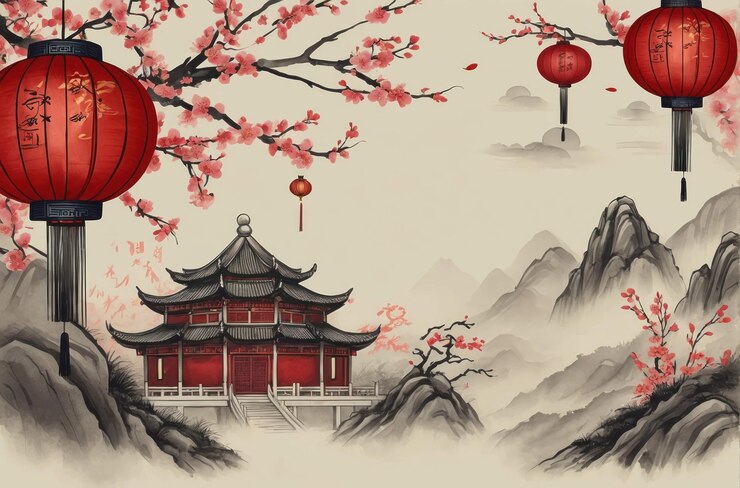China’s Soft Power
BRICS, 15 Jul 2024
Vladislav B. Sotirovic – TRANSCEND Media Service
12 Jul 2024 – It is of extreme importance to understand the concept and motivation of soft power by China – the most rising emerging market power today and already the first export nation with the second-largest economy in the world.
Concerning China and its foreign policy, soft power is one of the most frequently used political and social concepts during the last two decades. It has to be immediately noticed that one of the major reasons for China’s easy acceptance of soft power is that soft use of power has historically a strong cultural foundation in traditional Chinese foreign policy (for instance, in the case of the Korean Peninsula). Traditional China has a rich military-free culture, which mostly contributes to China’s use of cultural power in its foreign relations.[1] The revival of material and cultural power prompts China to easily find an echo in the concept of soft power. As a matter of fact, all ethnic Chinese people are proud of their cultural history.
Given that soft power is highly related to culture, it can be said that it is natural that China should stress the importance and use of cultural and soft power concerning its competitive cultural advantage in international society. Additionally, for most Chinese political and economic elites, the factor of civilization is playing a key role in shaping the future global order of world politics. In other words, in the eye of the Chinese elite, the way civilizations shape world order is not through clashes, as Samuel P. Huntington claims (a theory of Clash of Civilizations), but through dialogue between them. Such belief in civilization as well as is reinforcing the Chinese emphasis on soft power. Another reason for this is that Chinese society is fundamentally a relation-based society. This means, practically that social power is originating mostly, but not entirely, from the density of relational networks. Social power should be used for strengthening rather than disrupting the balance of social relations. Such a particular understanding of power is as well as consistent with the nature of soft power.
Some principles relating to Chinese use of soft power in foreign policy could be summarized briefly as follows:
- At the cultural level, people from different cultures and civilizations should be mutually appreciated through communication. Diplomacy is, therefore, understood by the Chinese political authorities to be a useful means to reduce tensions among different civilizations.
- At the economic level, China prefers to use persuasive rather than coercive means in order to address political disputes. In practice, in many cases, China insists that disputes cannot easily and simply be resolved through economic sanctions.
- At the societal level, soft power building should help to establish mutual social assistance systems in international areas. That is why China is stressing the importance of transnational societal linkage in a globalized world.
It has to be emphasized that most citizens of China like officials and scholars are fully aware of the great gap in terms of soft power capacity between China and the USA. There is an opinion when the long line at the USA embassy visa application window in Beijing starts to get shorter, this may well mean that the soft power gap between China and the USA has become more balanced. In a soft power survey in East Asian countries in 2008, for instance, the Chicago Council on Global Affairs showed that the USA has much more soft power than China in East Asia. Even more, China’s soft power, in some indices, was even weaker than that of South Korea and Japan.[2] Through the opposite lens, with the growing wave of China-craze and businessmen’s rush to China, however, is it accurate to think that China is facing an unprecedented opportunity to upgrade its soft power around the globe?
It is frequently reported that China’s image in Africa, compared with its image there before the reform program started in 1979, is quite mixed. On one hand, China greatly increased its official aid to several African states, but on the other hand, its image is more or less damaged by some Chinese companies’ profits-before-everything activities there (that is the same with many Western companies too).
Several indicators are showing that China’s soft power is increasing in Asia and the rest of the world during the last twenty years, particularly after the 2008 global financial crisis that started in the USA.[3] From that time onward, soft power has become a keyword in Chinese foreign policy as there is great potential for the development of China’s soft power.[4] It has to be noticed that in many countries in developing world of emerging market economies Chinese formula of authoritarian government and successful market economy (China’s tripling of its GDP over 30 years) has become more popular than the previously dominant American formula of liberal market economics with democratic government.
However, from a general point of view, even if the authoritarian growth model produces soft power for China in authoritarian countries, it does not produce attraction in democratic countries. In other words, what attracts Venezuela, may repel in France.[5] However, many Western nations are losing their image and soft power in developing countries in their race with both China and Russia because of their neo-imperialistic policies recognized as such by ex-Western colonies in Africa, Latin America, and Asia. For instance, the G. W. Bush (Junior) administration’s general tendency towards unilateralism and in particular its approach to the “war on terror” damaged the USA’s soft power and bred resentment, particularly within the Muslim world. This US unilateralism was dramatically demonstrated by the USA’s 2003 invasion of Iraq.
Indeed, the then UN Secretary-General, Kofi Annan, declared explicitly that, as the invasion had not been sanctioned by the OUN SC, and was not following the principles of the UN Charter, it was a clear breach of international law (like NATO’s aggression on the Federal Republic of Yugoslavia in 1999). The 2003 Iraq War demonstrated how the OUN could be reduced to the role of a bystander in a world dominated by the hegemonic USA. However, such action undoubtedly weakened the USA’s soft power.[6]
Instead of placing weight only on the economy and material resources, for the application of soft power, the future of China’s soft power will depend on what kinds of ideas China can contribute to the world, especially under the current uncertain international conditions and global rivalry between China and the USA and the USA and Russia. The most significant challenge to US power and global hegemony is the rise of emerging market states (like BRIC) especially China. In general warnings about the decline of US global hegemony date back after the Vietnam War and the Iranian Islamic revolution. The rise of China is, nevertheless, the most significant phenomenon in IR during the last 40 years, suggesting the emergence of a new global hegemon, with China, set to overtake the USA in economic terms during the 2020s.
Although China’s global power is very closely related to its economic resurgence, its influence is as well as growing in other respects. China has by far the largest army in the world and is second only to the USA in terms of military spending. Chinese influence over Africa, in particular, has expanded considerably due to massive financial investment, linked to securing supplies of energy and raw materials. China’s structural power is as well as growing, as is reflected in the growing influence of the G-20, its role within the WTO, and the fate of both the 2009 Copenhagen Climate Change and the 2021 Glasgow Climate Change conferences.
China’s soft power is linked to its association with anti-colonialism and its capacity to portray itself as the representative of the global South. On the other hand, the USA’s soft power has declined in several respects. Its reputation has been damaged by its association with corporate power and widening global inequality, and resentment developing against “globalization as Americanization”. Serious damage has also been done to the USA’s moral authority by the military invasion of Iraq and by the terrible treatment of prisoners at Abu Ghraib and the Guantanamo detention camp.
[1] See more in [Lei Haizong, Chinese Culture and Chinese Soldiers in History, Beijing: Commercial Press, 2001 (in Chinese)].
[2] Christopher Whitney, David Shambaugh, Soft Power in Asia: Results of a 2008 Multinational Survey of Public Opinion, Chicago Council on Global Affairs [www.thechicagocouncil.org].
[3] Sheng Ding, The Dragon’s Hidden Wings: How China Rises with Its Soft Power, Lanham: Lexington Books, 2008.
[4] People’s Daily Online, “How to Improve China’s Soft Power”, 2010-03-11.
[5] Ingrid d’Hooghe, The Limits of China’s Soft Power in Europe: Beijing’s Public Diplomacy Puzzle, Clingendael Diplomacy Papers, No. 25, Netherlands Institute of International Relations, Clingandel, 2010.
[6] By definition, soft power is the power of attraction rather than coercion. It is the ability to influence others by persuading them to follow or agree to norms and aspirations that produce the desired behavior, as opposed to using threats or rewards.
__________________________________________
Dr. Vladislav B. Sotirovic is an ex-university professor and a research fellow at the Centre for Geostrategic Studies, Belgrade, Serbia. Email: sotirovic1967@gmail.com – www.geostrategy.rs
Personal disclaimer: The author writes for this publication in a private capacity which is unrepresentative of anyone or any organization except for his own personal views. Nothing written by the author should ever be conflated with the editorial views or official positions of any other media outlet or institution.
Tags: Asia and the Pacific, BRICS, China, Development, Economics, History, Power, Soft Power
This article originally appeared on Transcend Media Service (TMS) on 15 Jul 2024.
Anticopyright: Editorials and articles originated on TMS may be freely reprinted, disseminated, translated and used as background material, provided an acknowledgement and link to the source, TMS: China’s Soft Power, is included. Thank you.
If you enjoyed this article, please donate to TMS to join the growing list of TMS Supporters.

This work is licensed under a CC BY-NC 4.0 License.
Join the discussion!
We welcome debate and dissent, but personal — ad hominem — attacks (on authors, other users or any individual), abuse and defamatory language will not be tolerated. Nor will we tolerate attempts to deliberately disrupt discussions. We aim to maintain an inviting space to focus on intelligent interactions and debates.

